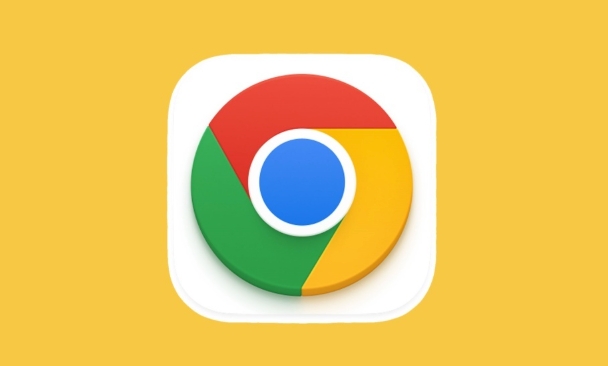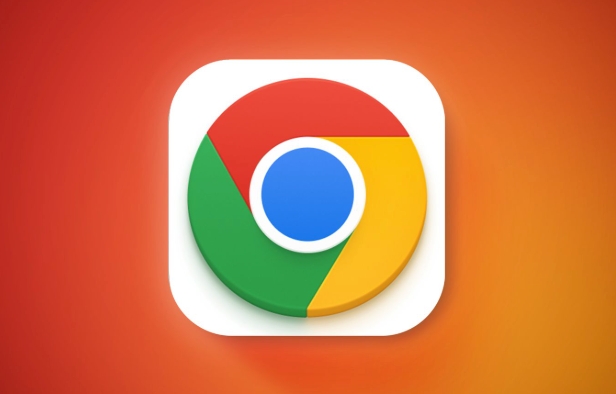 Computer Tutorials
Computer Tutorials
 Troubleshooting
Troubleshooting
 Why is the address bar search (omnibox) not working in Google Chrome?
Why is the address bar search (omnibox) not working in Google Chrome?
Why is the address bar search (omnibox) not working in Google Chrome?
Aug 03, 2025 am 04:34 AMCheck if the default search engine and sync settings are correctly configured in Chrome under Settings → Privacy and security → Search engine. 2. Ensure search suggestions and autocomplete are enabled in Settings → Privacy and security → Autofill and confirm prediction services are turned on. 3. Test the omnibox in Incognito mode to rule out extension interference, and disable extensions one by one if the issue is resolved there. 4. Clear browsing data or reset Chrome settings to default if corrupted data is suspected. 5. Run a malware scan using Chrome Cleanup Tool or antivirus software and verify DNS settings are not blocking Google services. 6. Update Chrome via chrome://settings/help or reinstall Chrome if the problem persists, ensuring bookmarks are backed up first — typically, the issue is caused by a misconfigured setting or conflicting extension and can be resolved by following these steps in order.

The address bar (omnibox) in Google Chrome not working can be frustrating, but it’s usually due to a temporary glitch, settings misconfiguration, or extension interference. Here’s a breakdown of common causes and how to fix them.

1. Check if Chrome Sync or Search Engine Settings Are Misconfigured
Chrome relies on your default search engine and sync settings to power omnibox suggestions and searches.
- Go to Settings → Privacy and security → Search engine
- Make sure Google (or your preferred search engine) is selected as the default.
- Under Address bar and search, ensure “Search engine used in the address bar” is set correctly.
- If you're signed in, check that Sync is enabled and working — broken sync can sometimes disable search suggestions.
Tip: Test by typing a few letters (e.g., “ch”) — if no suggestions appear, the issue might be with search suggestions being turned off.

2. Enable Search Suggestions and Autocomplete
Chrome may have suggestions disabled, making the omnibox seem unresponsive.
- Go to Settings → Privacy and security → Autofill
- Make sure Autocomplete searches and URLs is turned on
- Also check Use prediction service to load pages more quickly — enabling this helps with omnibox functionality
Alternatively, go directly to:

chrome://settings/syncSetup
and ensure "Other Google services" is allowed for sync.
3. Disable or Test with Extensions Off
Extensions — especially ad blockers, privacy tools, or script blockers — can interfere with omnibox behavior.
- Open Chrome in Incognito mode (Ctrl Shift N). Extensions are disabled by default here.
- Try using the address bar in Incognito:
- If it works, an extension is likely the culprit.
- Go to chrome://extensions, and disable extensions one by one to identify the problematic one.
Common offenders: uBlock Origin, Privacy Badger, certain antivirus browser add-ons.
4. Clear Browsing Data or Reset Chrome Settings
Corrupted settings or cached data can break omnibox functionality.
Try clearing browsing data:
- Settings → Privacy and security → Clear browsing data
- Clear cookies and cached images (last hour or last 24 hours)
- Try again
If that doesn’t help, reset Chrome:
- Go to Settings → Reset settings → Restore settings to their original defaults
- Confirm reset — this won’t delete bookmarks or saved passwords, but will reset startup pages, new tab behavior, and search engine settings.
5. Check for Malware or Network Issues
Some malware redirects or hijacks the browser’s search function.
- Run a scan using Chrome Cleanup Tool (built into Chrome on Windows)
- Or use trusted antivirus software
- Also check your host file or router settings if the issue persists across devices
Also, ensure your DNS isn’t blocking Google services — try switching to Google DNS (8.8.8.8).
6. Update Chrome or Reinstall
An outdated or corrupted Chrome install can cause omnibox issues.
- Go to chrome://settings/help — Chrome will check for updates
- If no update fixes it, consider uninstalling and reinstalling Chrome (back up bookmarks first)
In most cases, the problem is either a disabled suggestion setting or a conflicting extension. Start with checking search settings and testing in Incognito mode — that’ll narrow it down fast.
Basically, it's not usually a big issue — just a small setting or add-on blocking the way.
The above is the detailed content of Why is the address bar search (omnibox) not working in Google Chrome?. For more information, please follow other related articles on the PHP Chinese website!

Hot AI Tools

Undress AI Tool
Undress images for free

Undresser.AI Undress
AI-powered app for creating realistic nude photos

AI Clothes Remover
Online AI tool for removing clothes from photos.

Clothoff.io
AI clothes remover

Video Face Swap
Swap faces in any video effortlessly with our completely free AI face swap tool!

Hot Article

Hot Tools

Notepad++7.3.1
Easy-to-use and free code editor

SublimeText3 Chinese version
Chinese version, very easy to use

Zend Studio 13.0.1
Powerful PHP integrated development environment

Dreamweaver CS6
Visual web development tools

SublimeText3 Mac version
God-level code editing software (SublimeText3)
 How to stop Chrome from updating in the background on Mac
Jul 21, 2025 am 12:41 AM
How to stop Chrome from updating in the background on Mac
Jul 21, 2025 am 12:41 AM
To prevent Chrome from automatically updating on Mac, it can be done by disabling update services, modifying permissions, and restricting network access. 1. Use terminal commands to disable the GoogleSoftwareUpdate daemon to prevent background updates; 2. Modify update directory permissions to prevent Chrome from starting the update process by itself; 3. Restrict Chrome's outbound network connection through system firewall or third-party tools to further eliminate update requests. Using these methods in combination can effectively prevent Chrome from being automatically updated.
 How to fix Chrome's spell checker not working
Jul 20, 2025 am 12:03 AM
How to fix Chrome's spell checker not working
Jul 20, 2025 am 12:03 AM
When Chrome spelling check fails, you can troubleshoot and fix it by following the following steps: 1. Confirm that the "Use Spelling Check" function is enabled and check whether the corresponding language is enabled in the language settings; 2. Adjust the input language order, delete the redundant language, and ensure that the main language enables spelling check; 3. Close possible conflicting extensions, especially syntax or translation plug-ins; 4. Update Chrome to the latest version and check the operating system updates. If it still doesn't work, try resetting Chrome settings.
 How to stop Chrome from automatically opening PDF files
Jul 21, 2025 am 12:09 AM
How to stop Chrome from automatically opening PDF files
Jul 21, 2025 am 12:09 AM
To let Chrome download directly instead of opening it when clicking on the PDF link, 1. Enter chrome://settings/content/pdfDocuments to check "DownloadPDFfilesinsteadofautomatically opening theminChrome"; 2. Check whether there are plug-ins such as Lightpdf or Smallpdf interfering behavior, you can try to disable the test; 3. You can use the developer tools to copy the link and paste the new tag to trigger the download. The above methods can be selected according to the situation.
 How to fix screen tearing when scrolling in Chrome
Jul 25, 2025 am 12:55 AM
How to fix screen tearing when scrolling in Chrome
Jul 25, 2025 am 12:55 AM
The screen tear occurs when the Chrome browser scrolls, which is usually caused by the out-of-synchronization of rendering and refresh. The solutions are as follows: 1. Ensure that hardware acceleration is enabled, you can manually check the settings and restart the browser; 2. Forcefully enable Compositor and related options to optimize rendering; 3. Check the display refresh rate, use single-screen testing, and enable VSync or adaptive synchronization technology on supported devices; 4. Update the graphics card driver or replace the display interface such as using the DP interface. It is recommended to start the troubleshooting with simple steps and gradually adjust to find the best configuration.
 How to fix Chrome profile sync getting stuck in setup
Jul 25, 2025 am 01:10 AM
How to fix Chrome profile sync getting stuck in setup
Jul 25, 2025 am 01:10 AM
The problem of Chrome sync stuck can be solved through the following steps: 1. Check the network connection and Google account status to ensure normal access; 2. Log out and log in to the Chrome account again; 3. Clear the synchronized data and restart the browser; 4. Reset Chrome settings; 5. Try the traceless mode or new user profile. Sequentially checking can effectively restore the synchronization function.
 How to fix Chrome opening new windows instead of tabs
Jul 26, 2025 am 01:29 AM
How to fix Chrome opening new windows instead of tabs
Jul 26, 2025 am 01:29 AM
1. Check whether the shortcut attribute has additional parameters and delete it; 2. Clear cache and switch startup settings, or create new user information; 3. Extend the impact and disable the problem plug-in through traceless mode. Chrome pops up new windows instead of tabs usually due to exceptions in shortcut parameters, cache configuration conflicts, or third-party extension interference. Check and adjust the corresponding settings in turn to resolve.
 Chrome keeps opening new tabs by itself
Jul 22, 2025 am 12:22 AM
Chrome keeps opening new tabs by itself
Jul 22, 2025 am 12:22 AM
The problem of Chrome automatically popping up new tabs is usually caused by malicious extensions, advertising scripts, or browser hijacking. The solutions are as follows: 1. Check and uninstall suspicious extensions, especially ad-class plug-ins; 2. Clear browser caches and cookies to eliminate data corruption; 3. Check whether the homepage and default search engine settings have been tampered with and manually corrected; 4. Use antivirus software such as WindowsDefender or Malwarebytes to scan and clear potential malware; 5. Finally, try resetting Chrome settings to restore the default configuration. Troubleshooting in this order can effectively solve most abnormal labeling problems.
 How to fix Chrome when it's not printing correctly
Jul 26, 2025 am 02:46 AM
How to fix Chrome when it's not printing correctly
Jul 26, 2025 am 02:46 AM
Chrome printing exceptions can be solved in the following ways: 1. Check the printer selection, paper size, orientation, zooming and background graphics settings in the print preview; 2. Try stealth mode to eliminate extended interference and clear cache; 3. Update or reinstall the printer driver, replace the general driver or use the "Print as PDF" method; 4. Finally, you can reset the Chrome settings to restore the default. Most problems can be solved through the first few steps. If they still fail, you can export PDF to print.






